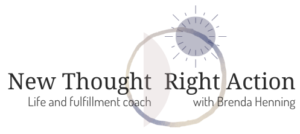Oftentimes, this type of boundary and tough love are used in conjunction with a decision that involves asking a person with an addiction to leave his or her family home.
When conducted with support and intervention from professionals in the addiction field, this can be a strategy that can be the turning point for a person to decide to enter a treatment program. Sometimes, though, these events occur after continuous stress which a family experiences when living with a person who is actively using drugs.
Addiction is chronic
Loving a person who struggles with a chronic, relapsing brain disorder is tough. The nature of the illness sometimes prevents the person who has the addiction from acknowledging their behaviors are out of the healthy range. The unknown risk is how entrenched the addiction is for an individual. If s/he continues on in a state of denial and refuses, you may have to work through the emotional dilemma of this individual becoming homeless.
Yet, when family members become distressed to the point where they seek counseling for themselves, they learn about a concept called boundaries. Boundaries are a form of love and they are tough to implement. This is because a boundary is being set in response to a pattern of behavior which crosses societal norms.
Love is blind. This is somewhat true, but more realistically people can be blind to love, especially when others make a tough decision to step back to allow the natural order of things to occur.
Families have the right to safety
Families oftentimes are placed in double (love) blind experiences when they are trying to find their way in helping someone recover from a drug addiction. The first function of a family is to support its members in learning skills, morals, and values. When addiction strikes a family member, normal approaches to building a thriving family unit can be affected. Oftentimes, a family member’s addiction will drive the individual to decisions which do not fall within the societal norms of morals or values.
Unknowingly, non addicted family members can be caught up in a perpetuation of fueling the addiction through co-dependent choices. A family member needs a ride somewhere and what caring family member wouldn’t give one? Or can s/he borrow a few bucks until s/he gets paid? Saying no to simple requests seems petty and punitive. But within the illness of addiction, keeping the affected individual comfortable may literally be “loving them to death.” People are only as sick as their own and other people’s secrets, and addiction is sneaky and secretive. Family members who love someone with an addiction don’t know what they don’t know.
Addiction is #1 cause of divorce
Before families realize what is happening, the constant conflict and anxiety created by addiction, has begun to break down the family unit. Substance abuse is a leading reason married couples seek divorces. When a child is the one suffering from addiction, families frequently cope with a degree of grief and anguish that only other families battling life-threatening diseases, such as cancer, can understand.
Consequently, all family members become blind to love. Underneath the person suffering from addiction is the valuable human being God created. But the manipulation and deceit of addiction destroys trust. In periods of sobriety, the restored family member resurfaces and others within the family welcome them but are confused themselves as to how they can so harshly judge a relative.
Eventually, family members may begin to see that trying to fix the consequences for their loved one’s addiction is making it worse for them and the person with the addiction. Yet, it is scary to relinquish control. The illusion for the non addict family member is they make better decisions because they are sober. However, if consequences of some bad choices aren’t allowed to be experienced, then no motivation exists to change.
Addiction can and does kill and it can’t be cured. But it can be managed. Just as a family wouldn’t treat a loved one’s cancer, family’s ought not endeavor to manage another’s addiction. Working with professionals is as important for the family members who don’t suffer from addiction as it is for those with the illness. Joining a mutual support group, such as Al-Anon or Nar-Anon can also assist the family in recovery.
When a family suffers from the illness of addiction, boundaries are tough love and challenging to implement. Yet, boundaries, as tough of love this is may be the highest form of love one can offer another.
And when a family sees this, then addiction can no longer blind people to love.
Author’s note: This post contains an affiliate link. If you buy a product, the owner of this site may collect a commission.

